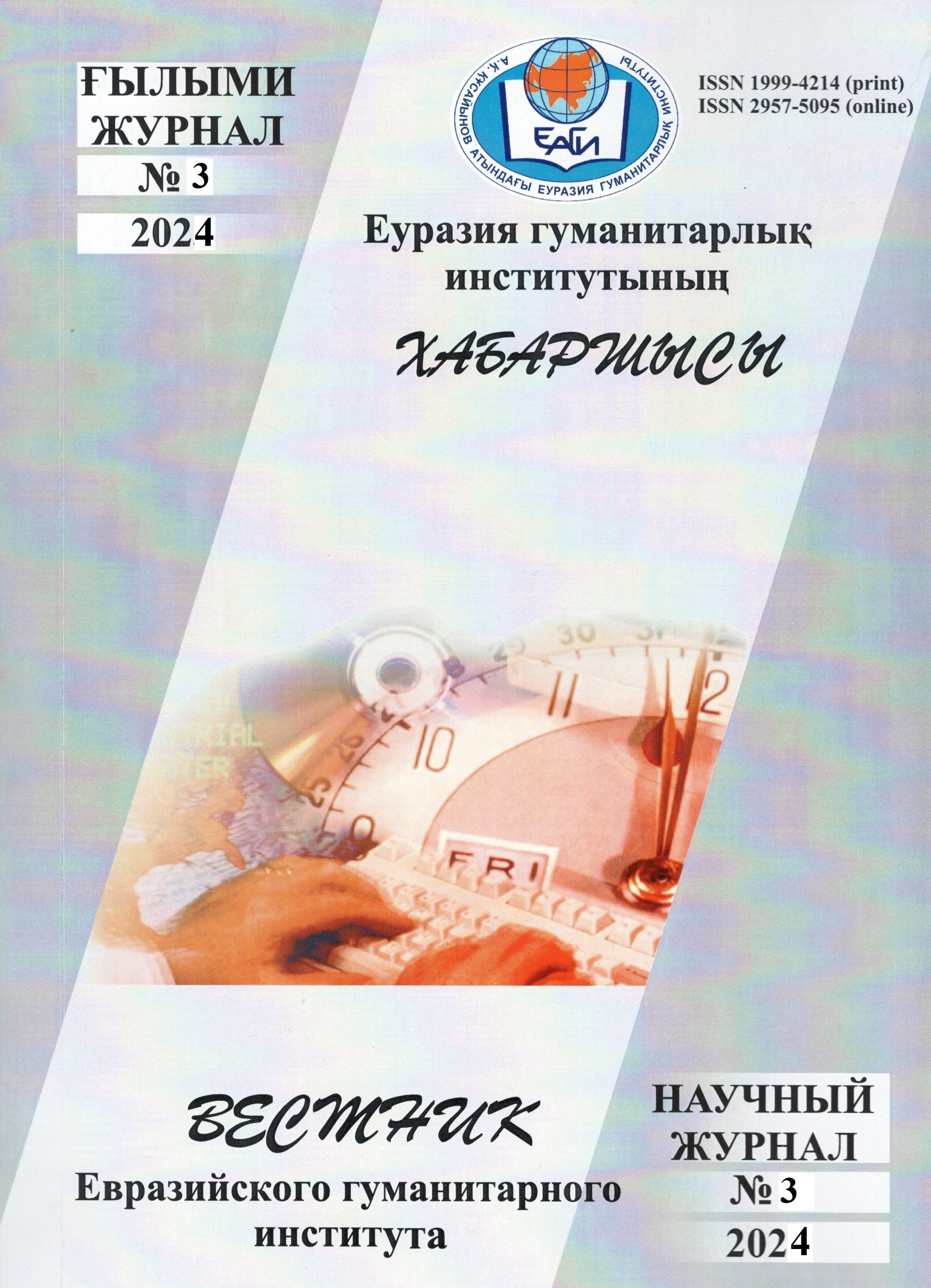FORMATION OF CROSS-CULTURAL COMPETENCE FOR THOSE STUDYING KAZAKH LANGUAGE AS A SECOND LANGUAGE
Keywords:
cross-cultural competence, Kazakh language, psychological basis, contrastive linguistics, pedagogical experiment, project activity.Abstract
This scientific article is devoted to the study of the process of formation of cross-cultural competence in Kazakh language learners. In the modern Kazakh society mastering of Kazakh language becomes an urgent need, although mastering it still wants the best. For full-fledged mastery of the Kazakh language, changes in the existing methods of teaching the Kazakh language are required. It is necessary to improve the existing methods of teaching Kazakh language on the basis of a polyparadigmatic scientific paradigm based on the principles of anthropocentrism, expansionism and functionalism. Cross-cultural competence is based on the new methodological paradigm, it takes into account all its principles, especially the principle of expansionism, which provides for interdisciplinarity in the study of any phenomenon. When teaching the Kazakh language, it is impossible to develop only communicative competence of Kazakh language learners. It is necessary to expand the composition of their competences. In this regard, the aim of the article is to form cross-cultural competence of Kazakh language learners, to substantiate the necessity of mastering the competences included in its composition. The article presents a critical review of modern research on the methodology of teaching the Kazakh language, proposes a methodological development of cross-cultural competence, proves why psychological knowledge is necessary, as well as knowledge from other fields (intercultural communication, linguistics, cognitive-contrastive linguistics, linguocountry studies, communication, etc.). Without mastering the knowledge about the barriers of «one's own perception», «one's own-other», without cognitive-contrastive analysis of the values of different cultures, without the development of cognitive skills (analysis, synthesis, comparison, identification of contrasts), without mastering the background knowledge of the Kazakh language, it is impossible to consider that the learner will speak another language. The learner can master the Kazakh language in neighborly communication, but only colloquial, not literary. For this purpose, he/she should know various scientific bases of language teaching.
As a result of the research the advantages of mastering cross-cultural competence are revealed, the stages of its formation and improvement are revealed. The article concludes with generalizations and conclusions. The article is characterized by novelty, as the problem of learning Kazakh language on the basis of cross-cultural competence is put for the first time. This research has theoretical and practical value for researchers, for teachers of Kazakh language.


